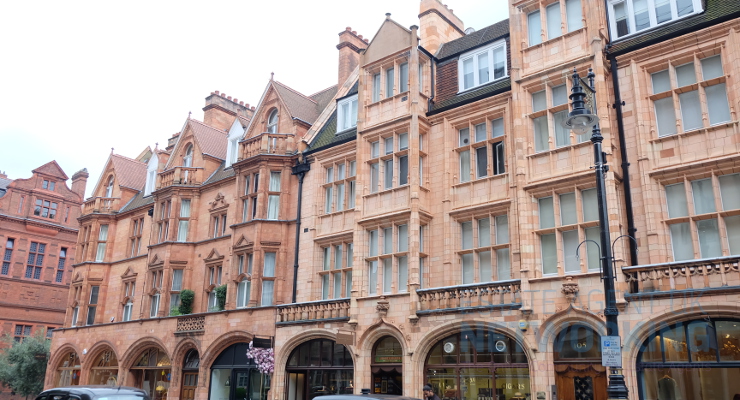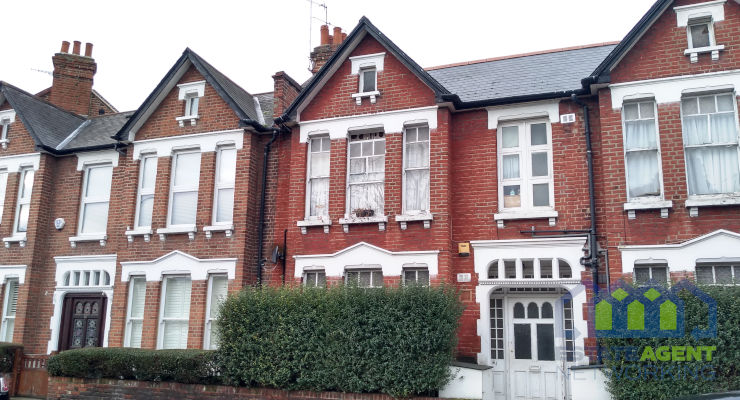Before you buy a property in a Conservation Area…
Buying a residential property in London is a big investment, whether it’s your family home or a buy-to-let, a city pad or a house in the suburbs. If you have your heart set on a property that is located in one of the capital’s many Conservation Areas, there are significant implications that should inform your purchase decision.
I spoke to Peter Barry Surveyors to get some professional advice about the important issues to look out for when buying a home in a Conservation Area.
What is a Conservation Area?
Local Councils are typically responsible for designating a particular local area as a Conservation Area in accordance with Section 69 of the Planning (Listed Buildings and Conservation Areas) Act 1990. This can be “any areas of special architectural or historic interest the character or appearance of which it is desirable to protect or enhance”.
An area can be designated for its buildings or architecture, parks and greens, trees and open spaces and even street furniture. It could be that the windows, guttering and roofing of a group of building is protected in this way, rather than that of an individual building.
Once Conservation Area status has been conferred, the Council will continue to develop and enforce policies to make sure the attractive features of the area are preserved. Every Council will have slightly different policies, while new restrictions and limitations may can be introduced at any time, following consultation with the residents.
Where are they?
While it may not be obvious to the eye that a particular area has been designated, or indeed where the boundaries may be, estate agents should include the fact that a property is inside a Conservation Area in their particulars. Once you’re offer has been agreed, your conveyancer will undertake a local authority search to provide more information and highlight any restrictions that may affect your ownership.
There are over 8,000 Conservation Areas in the UK, typically comprised of nice looking buildings, period properties and attractive neighbourhoods. In London, Conservation Areas are commonplace and you’ll be hard pressed to find a borough that has none. Westminster has 56 Conservation Areas, Camden has 40, Islington has 41. Further afield, there are 72 Conservation Areas in Richmond, 39 in Croydon and 44 in Bromley. From Crouch End to Regent’s Park, Parson’s Green to Blackheath, these designated areas are not only highly desirable residential areas, they’re sure to command higher property prices too.
What does Conservation Area status mean for home ownership?
Owning a piece of local history in the capital comes with a price. In terms of planning restrictions and related maintenance costs, there is a set limit of what you can do to the building as far as the appearance of the property’s exterior is concerned.
You may not be allowed to substantially alter the appearance of the building, and even something that you may think is a minor improvement may not be permitted. A loft conversion, for instance, may be no problem per se, except for a Velux window that would be visible from the street.
For replacements to windows, guttering and roofing, you may need to go to a specialist supplier for an exact replica, rather than taking advantage of competitive offers from your local builders’ merchant. UPVC windows or double glazing upgrades may not be permitted. To preserve the character of the area, certain exterior paint colours may be prescribed. Because of these tighter planning controls, any repairs, refurbishments and improvement you make to the building is likely to take longer, involve more paperwork and cost more.
The local planning authority can also introduce Article 4 Directions, which in effect removes Permitted Development Rights and means that homeowners must obtain planning permission for any works to be carried out. This will typically be done to protect important features such as windows, roofs and chimneys that are integral to the character of the Conservation Area. Finally, failure to obtain proper planning consent for demolishing a structure in a Conservation Area is a criminal offence.
What are the advantages of owning a property in a Conservation Area?
If you are attracted to a particular property in a Conservation Area, chances are that you will wish to do everything possible to protect its special charm and character, including that of the surrounding area. Rather than viewing the stricter planning controls as a burden, you may welcome the extra layer of security that comes from knowing that the building and its neighbourhood won’t be put at risk from unsympathetic or excessive development.
What’s more, your neighbours will have the same interests, which can make for a strong and supportive community spirit, with all residents keenly aware of their role in preserving a historic part of London.
Finally, there’s the financial incentive to safeguard the special character of the area and your property within it. Conservation Areas are not only a useful measure to protect the appearance of the properties, they also help to keep their value strong, even in times of economic uncertainty.
Many home buyers favour period properties, with original features and architecture intact, in their property search. Not only does a home like this provide you with an attractive place to live, but when it comes to selling the property, the fact that the special character of the building and its surrounding has been protected through the years will pay always dividends.








